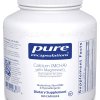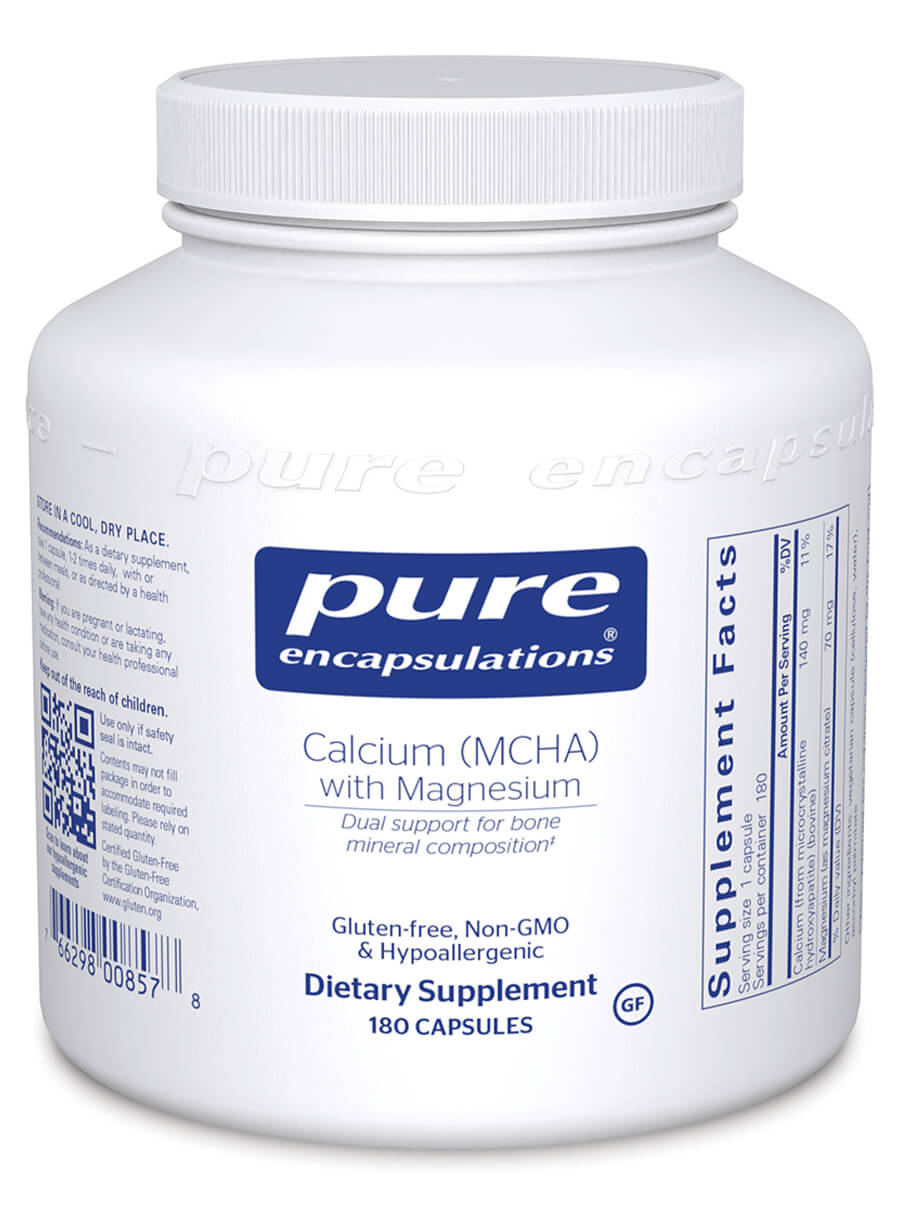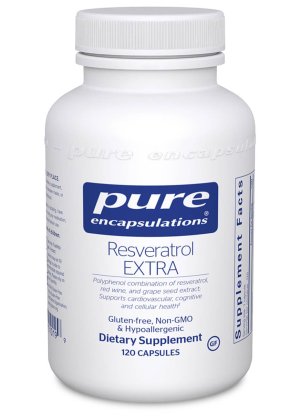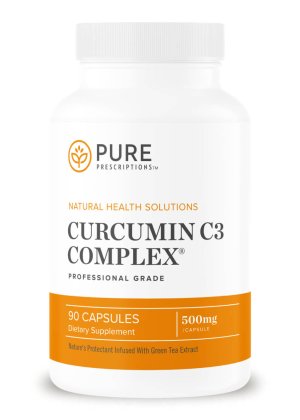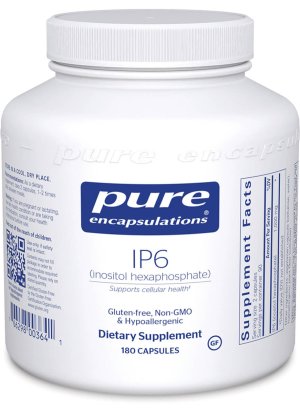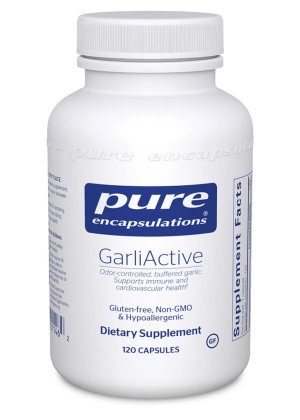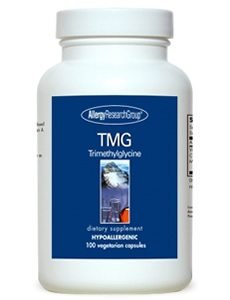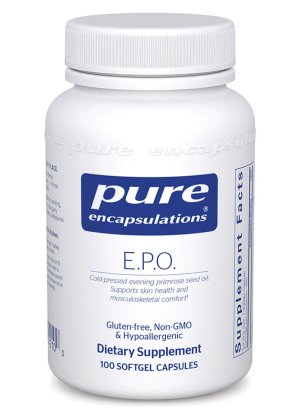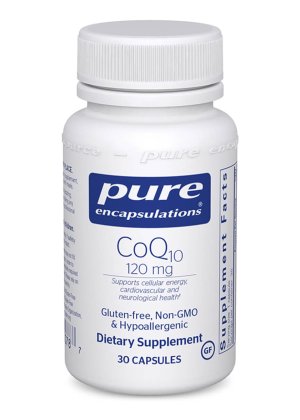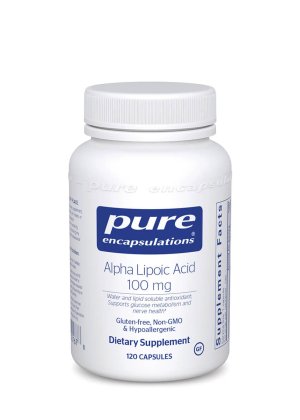Calcium (MCHA) with Magnesium
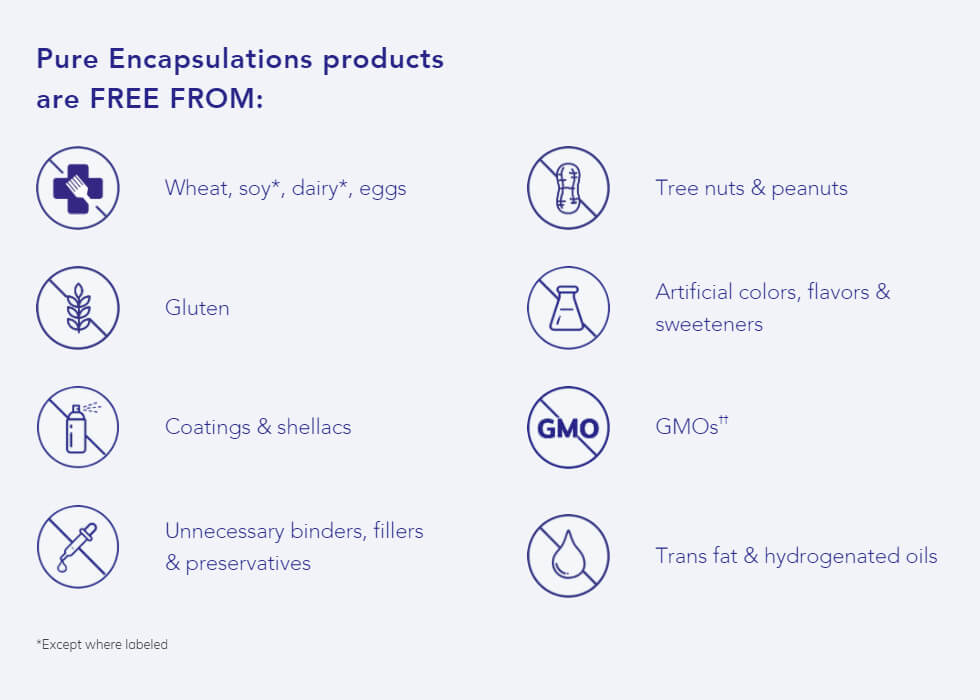
Suggested Use: 2-6 capsules daily, in divided doses, with or between meals.
What Is It?
Calcium microcrystalline hydroxyapatite (MCHA) is a calcium compound, containing minerals in their natural ratios, as well as residues of bone matrix, proteins, and glycosaminoglycans. Magnesium citrate provides additional support for bone and cardiovascular health in a highly bioavailable fully chelated form.*
Uses For Calcium (MCHA) with Magnesium
Bone: Multiple randomized, double-blind, placebo controlled studies have reported statistically significant positive results using calcium supplementation to help reduce the risk of osteoporosis for both women and men.† Magnesium, like calcium, is an essential bone matrix mineral that promotes healthy bone metabolism. Supplementation with calcium and magnesium provides synergistic support for bone health.*
†Risk factors for osteoporosis include sex, race, age and inadequate calcium intake. Populations at highest risk for osteoporosis include Caucasian, Asian, and postmenopausal women, and elderly women and men. Adequate calcium intake throughout life is linked to a reduced risk of osteoporosis, as calcium helps to optimize peak bone mass during adolescence and early adulthood in conjunction with exercise and healthy diet. Calcium intake greater than 2,000 mg per day has no further known benefit to bone health.*
Cardiovascular: Magnesium supports cardiovascular health by helping to maintain healthy levels of cellular and plasma electrolytes, including calcium and potassium. Additionally, calcium and magnesium may help to promote healthy lipid metabolism and support healthy receptor function.*
What Is The Source?
Pure Encapsulations calcium microcrystalline hydroxyapatite is obtained from pasture-fed, pesticide-free bovine from New Zealand or Australia. Magnesium is derived from limestone. Citrate is derived from corn dextrose fermentation. Vitamin C (ascorbyl palmitate) is derived from corn dextrose fermentation and palm oil.
Are There Any Potential Side Effects Or Precautions?
Magnesium citrate can cause loose stools. If pregnant or lactating, or have a history of kidney stones, consult your physician before taking this product.
Are There Any Potential Drug Interactions?
Calcium should be taken separately from certain antibiotics. Magnesium should be taken separately from Bisphosphonate medications. Consult your physician for more information.
Product Ingredients
| Ingredients | AMT | %DV |
|---|---|---|
| calcium (microcrystalline hydroxyapatite) (bovine) | 140 mg. | - |
| magnesium (citrate) | 70 mg. | - |
| vitamin C (as ascorbyl palmitate) | 10mg. | - |
Why Buy From Us?Pure Prescriptions is a Family & Employee Owned & Operated Company. Our Customers Have Trusted Us with Their Health Needs for Over 23 Years.

We attribute our longevity to the good old-fashioned business practice of Taking Care of the Customer. Our Aim Is Simple; We want to provide you with the best customer service on the planet.
What We Are NOT: We are not a company owned by Wall Street Money or outside Investors telling us what to do or how to cut corners at the expense of quality products and customer care.
Did You Know: most well known brands (Yes, probably that all-natural brand you love) is owned and supported by big money investors? Oftentimes, the founder isn't even associated with the brand and has since sailed off into the sunset (literally) with a big pay-day...
What We Are: We are an independent, family and employee owned and operated company. We are not owned by Wall Street or any outside investors. We are self-funded, supported by our long-time and loyal customers that we appreciate and serve.
If you're not yet a customer of ours, we'd love the chance to show you how much we care.
We are real humans standing by to answer your health questions. We are here to recommend the right vitamins and supplements for your particular health needs.
Sincerely,
—Dr. Devin Ryerson
Founder & CEO
Helpful Links:
Contact Us | LIVE Chat | Vitamin Quiz
The Pure Prescriptions Difference
When you choose Pure Prescriptions, you become part of our caring community. We’re committed to enhancing your wellness with personalized service, expertly selected products, and a dedication to your health & happiness.


Related products
-
- Vitamin Quiz
- Deals
- Shop
- Brands
- Shop by Manufacturer Brand
- Shop by Manufacturer Brand
- About
- Login
